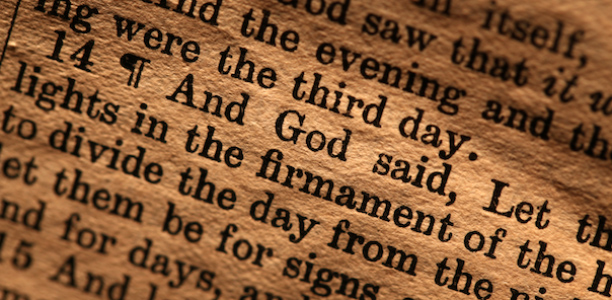By David Faust
 Recorded in 2 Chronicles 7 is how King Solomon and the Israelites dedicated the temple in Jerusalem: They knelt in awe as fire fell from the sky and God’s glory filled the temple. They sacrificed thousands of cattle, sheep, and goats. Musicians sang and praised God with their instruments.
Recorded in 2 Chronicles 7 is how King Solomon and the Israelites dedicated the temple in Jerusalem: They knelt in awe as fire fell from the sky and God’s glory filled the temple. They sacrificed thousands of cattle, sheep, and goats. Musicians sang and praised God with their instruments.
In the aftermath of this joyous occasion, the Lord appeared to Solomon at night and answered the prayers of his people with a combination of promises and warnings. God said, “If my people, who are called by my name, will humble themselves and pray and seek my face and turn from their wicked ways, then I will hear from heaven, and I will forgive their sin and will heal their land” (2 Chronicles 7:14).
This famous verse has inspired many sermons and songs. Preacher/writer Mark Batterson and banker/speaker Ross Alan Hill have set up a website based on it, (www.circle714.com). Their stated mission is “to help the global church declare 2 Chronicles 7:14 over our lives, families and churches and circle it in prayer as we ask our great God for his Spirit to move afresh on our generation.” Since the website was established in 2012, approximately 100,000 individuals and more than 300 churches have signed up and promised to include this verse in their daily prayers.
To be clear, 2 Chronicles 7:14 was spoken when the old Mosaic covenant governed God’s relationship with his people. The Lord’s full message in this chapter includes warnings about droughts, locusts, plagues, and the destruction of the temple. When Christians quote this Scripture we must be careful not to rip it out of its historical context, but we shouldn’t ignore the powerful message it contains for God’s people in all generations. There are many ways this verse applies to us today:
“If”—God’s promises are conditional and require a response.
“My people”—What a privilege to be “a chosen people, a royal priesthood, a holy nation, God’s special possession” (1 Peter 2:9). We must always remember who we are and whose we are.
“Who are called by my name”—If we wear the Lord’s name tag on our chests, we must bear the Lord’s likeness in word and deed.
“Will humble themselves and pray”—In prayer we humbly acknowledge our reliance on God’s grace. Human brains, brawn, and beauty aren’t enough.
“And seek my face”—In a healthy marriage or a close friendship, we know one another’s facial expressions, enjoy the twinkle in our loved one’s eyes, and communicate with the slightest lift of an eyebrow. How well do we know the face of God?
“And turn from their wicked ways”—God requires repentance, not rationalization. The corruption of our time must be confessed from the heart, not explained away. “Wicked ways” never lead to a positive destination.
“Then I will hear from heaven”—God isn’t aloof and unavailable. He cares. He listens. He intervenes.
“I will forgive their sin”—In light of the New Testament, we understand the price God paid for our forgiveness. Jesus purchased it at the cross, affirmed it by his resurrection, sealed it by the Holy Spirit, and offers it freely to all who believe, repent, and are baptized (Acts 2:38).
“And will heal their land”—Ancient Israel needed God’s healing. So do all nations in the twenty-first century. If we want to see revival in our land, prayers based on 2 Chronicles 7:14 are a good place to start.
David Faust serves as the Associate Minister at East 91st Street Christian Church in Indianapolis, Indiana.
The Lookout’s Bible Reading Plan for July 19, 2015
Use this guide to read through the Bible in 12 months. Follow David Faust’s comments on the highlighted text in every issue of The Lookout.
Luke 10:1-16
1 Thessalonians 3:1-6
Psalm 138
2 Chronicles 1, 2
Luke 10:17-24
1 Thessalonians 3:7-13
Psalm 139
2 Chronicles 3–5
Luke 10:25-37
1 Thessalonians 4:1-10
Psalm 140
2 Chronicles 6, 7
Luke 10:38-42
1 Thessalonians 4:11-18
Psalm 141
2 Chronicles 8, 9
Luke 11:1-13
1 Thessalonians 5:1-11
Psalm 142
2 Chronicles 10–12
Luke 11:14-28
1 Thessalonians 5:12-28
Psalm 143
2 Chronicles 13–16



Comments: no replies